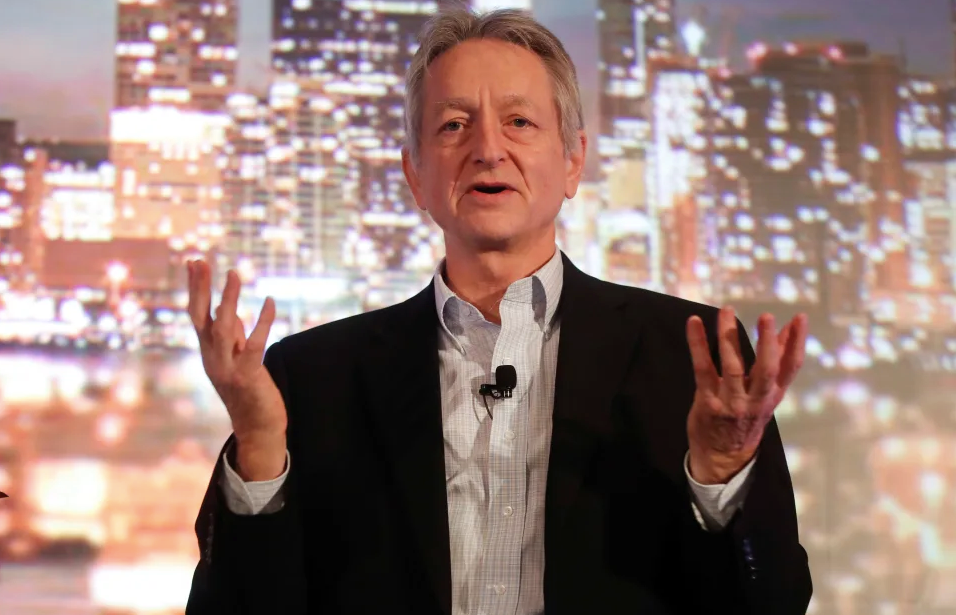|
Getting your Trinity Audio player ready...
|
Geoffrey Hinton, a leading figure in artificial intelligence, has resigned from his position as Google VP and engineering fellow in April, citing concerns about the risks associated with the technology. Hinton, known as the “godfather of AI,” fears that Google is losing its previous restraint on public AI releases in a bid to compete with other models, such as ChatGPT and Bing Chat. This, he says, could open the door to multiple ethical problems.
In the near term, Hinton is concerned that generative AI could lead to a wave of misinformation, making it difficult to distinguish what is true from what is false. He also believes that AI may not just eliminate “drudge work,” but could outright replace some jobs.
Going forward, the scientist is concerned about the possibility of fully autonomous weapons and the tendency of AI models to learn odd behavior from training data. He fears that without regulations or effective controls, these issues could escalate.
Hinton’s change of stance began last year when Google, OpenAI, and other companies began creating AI systems that he believes are sometimes superior to human intelligence. The pace of AI development has been rapid in just the past five years, and Hinton believes it’s “scary” to consider what could happen in the next five.
Google’s chief scientist Jeff Dean has responded to Hinton’s concerns, stating that the company is still dedicated to a “responsible approach” and is on guard for “emerging risks.” Google recently released a rough version of its Bard chatbot in March, after months of rumors that the company is worried about the competitive threat of generative AI. Before then, it refused to publicly release AI models like its art-oriented Imagen over the potential for toxic content and copyright violations.
Hinton, who has devoted his career to studying the neural networks that are often key to AI, is best known for developing an object recognition system in 2012. His breakthrough neural net could use training images to help recognize common objects. Google bought Hinton’s DNN research startup in 2013, and the underlying concept of his invention helped foster a surge of development that led to today’s generative tech.
Hinton’s concerns are shared by a number of influential academics and tech luminaries, including Elon Musk and Steve Wozniak, who recently signed an open letter calling for a six-month pause on AI development to address ethical and safety problems. Hinton’s resignation from Google carries significant weight, given his prominence in the industry.
Geoffrey Hinton’s departure from Google raises concerns about the unchecked and potentially dangerous growth of artificial intelligence, as the scientist warns of the potential ethical problems that could arise if AI development is not controlled.
Hinton’s departure comes as Google and other tech companies are pushing to develop generative AI systems that can produce human-like text, images, and videos. While the technology has shown impressive results, it also raises concerns about the use of AI-generated misinformation, deepfakes, and other malicious content. Hinton’s worry is that AI could be used to create propaganda that is indistinguishable from real news, which would have serious implications for public trust in journalism and democratic institutions.
Moreover, Hinton is concerned about the impact of AI on employment, as the technology has the potential to replace many jobs, particularly those that involve repetitive or routine tasks. Hinton believes that AI should be used to eliminate “drudge work” and free up human creativity and innovation, rather than replacing human labor altogether. He also warns that AI has the potential to learn and perpetuate biases and discriminatory behavior from training data, leading to unintended consequences.
Hinton’s concerns about AI are not unfounded. The technology has advanced rapidly in recent years, and some researchers predict that it could surpass human intelligence in the near future. The development of fully autonomous weapons is also a real possibility and one that could lead to catastrophic consequences if not properly regulated.
Google’s Chief Scientist Jeff Dean says that the company is committed to a responsible approach to AI, but Hinton’s departure raises questions about whether the tech industry is moving too fast for ethical considerations to keep pace. With more and more influential voices speaking out about the potential dangers of AI, it’s clear that a more comprehensive and coordinated approach to AI development and regulation is needed.
